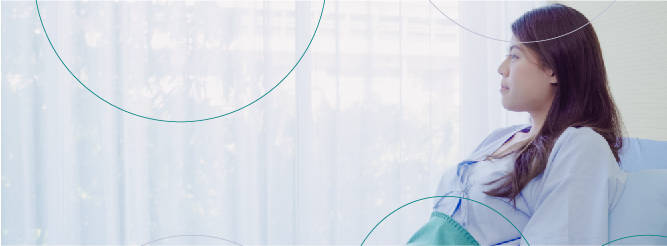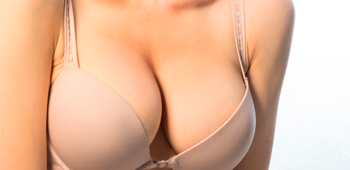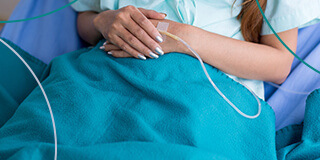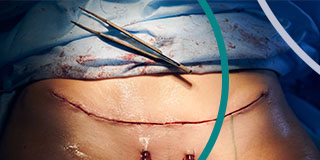
The rhinoplasty, better known as a nose job, is one of the most common cosmetic surgeries and there are many reasons why both men and women choose to undergo this specific procedure. One of the main reasons is for cosmetic enhancement, meaning that the patient is unhappy or uncomfortable with their nose, so they choose to modify it via a rhinoplasty, while others choose to go under the knife because they need reconstructive surgery to correct any nasal trauma.
Like any other type of surgery, the rhinoplasty is not exempt from having postoperative indications given by the surgeon and you should follow these instructions during your recovery process to avoid any complications. Your doctor will probably prescribe medication for the pain and show you which signs to look out for that may be of concern. It’s important that you contact them if you start noticing any abnormalities since they could be signaling that something went wrong after your rhinoplasty.
At LIMARP®, Dr. Liza María Pompa González and our team of plastic surgeons go over your specific case to design a treatment plan that will meet your needs and expectations. They will also answer all your questions pertaining to the recovery process and will give you an estimated timeline of when you can retake certain activities or daily routines.
One of the most common questions that arises is about the use of makeup after a rhinoplasty and how long should the patient wait before they can use it again. This includes foundation, blush, bronzer, and any other product that goes over the skin, especially around the nasal area. This article will give some insight into what a rhinoplasty entails, the recovery process, and how long you should wait before applying makeup to your face. If you have any lingering questions after reading the article, whether it’s about the postoperative process or the surgery itself, we invite you to contact your doctor so they can address any doubts.
What is a Rhinoplasty Surgery?
As we previously mentioned, a rhinoplasty is a cosmetic or reconstructive surgery that modifies the shape of the nose, which is made up of bone and cartilage. Before the surgery, your doctor will start a preoperative process that may include reviewing your medical history, a physical exam, photographs for a before and after assessment, and a discussion about your expectations. Some patients choose the rhinoplasty for cosmetic reasons and they should be aware that other physical modifications may be needed to match the new nose structure.
When it comes down to the surgery, your doctor can use two different methods to perform: an open rhinoplasty or a closed one. For the first one, they will create an incision along the cartilage that runs between your nostrils, known as the columella, while the latter consists in creating the incisiones inside your nostrils. The technique that the surgeon chooses depends on the shape of your nose and your postoperative goals and no matter which is performed on you, our team’s expertise will ensure that you have discreet scarring.
For more information about the rhinoplasty, we invite you to read the following article on our site or to schedule an appointment with us, we’ll be more than happy to answer any questions.
The Recovery Process
Following your surgery, the pain and swelling will be more prominent during the first week of recovery and it’s likely that you will also have bruises underneath your eyes and around your cheeks. This usually takes up to two weeks to subside, but it’s important to highlight that all swelling goes away after one year, which is how long the tissues on and around the nasal area take to fully heal.
Some indications that your doctor may recommend to ensure a smooth recovery include:
- Resting in your bed with your head raised higher than your chest. This will reduce or prevent bleeding and swelling.
- Keeping the internal dressings for at least seven days.
- Changing your gauze as directed by your doctor.
- Avoid strenuous activities and showers, opting for baths instead
- To avoid constipation that can lead to extra effort, eat high-fiber foods.
- Gently brush your teeth.
- Don’t rest eyeglasses or sunglasses on your nose for at least four weeks.
Another question that some patients may have is when they can start to wear makeup again, especially to cover up the subsequent bruises that appear around and on the nose. Next, we’ll address those questions and also explain the risks that come with applying makeup too early in your recovery process.
Using Makeup After a Rhinoplasty
Your doctor will recommend that you stop applying makeup and other skin care products, especially on and around the incision areas to avoid the risk of infection. They will also suggest avoiding adding pressure to the area because it could reopen the incisions, hindering the recovery process.
The waiting depends on several factors, such as the type of rhinoplasty that was performed on your nose. If your procedure was an open rhinoplasty, you should wait at least two months before applying makeup, although you could start once the stitches are removed. However, be mindful of the amount of makeup and where you put it, since you should still avoid the incisions.
If your doctor performed a closed rhinoplasty, you will have no external wounds and your recovery time will be shorter. Technically, you should be able to wear makeup a few days after your surgery, but keep in mind that your nose cast should remain dry in the first weeks. This means that removing makeup may dampen the cast.
If you do choose to apply makeup shortly after your rhinoplasty, we have a few suggestions on how to do so in a mindful and safe manner:
- Use clean brushes. It’s very important that you keep the nose area clean while the incisions recover and if you’re not careful while applying your makeup, you’re at risk of getting an infection due to the bacteria.
- Be gentle. This goes for applying and removing makeup because adding pressure to the area may cause irritation.
- Don’t use powder or foundation. These types of makeup usually block your pores and you want your skin to be able to breathe so that it can heal properly.
Contact Us to Learn More
If you have more questions about the postoperative process following a rhinoplasty, schedule an appointment with one of our doctors. We can help determine the right treatment for you. Contact us online anytime or give us a call at (619) 373-0229.


